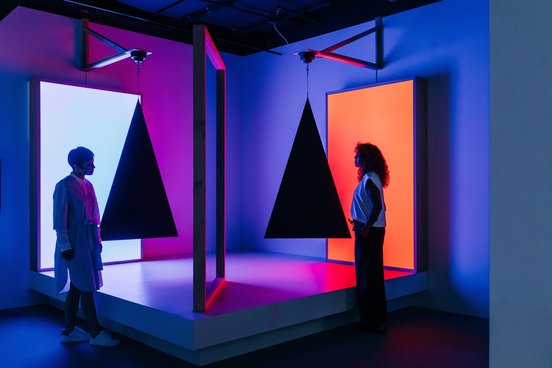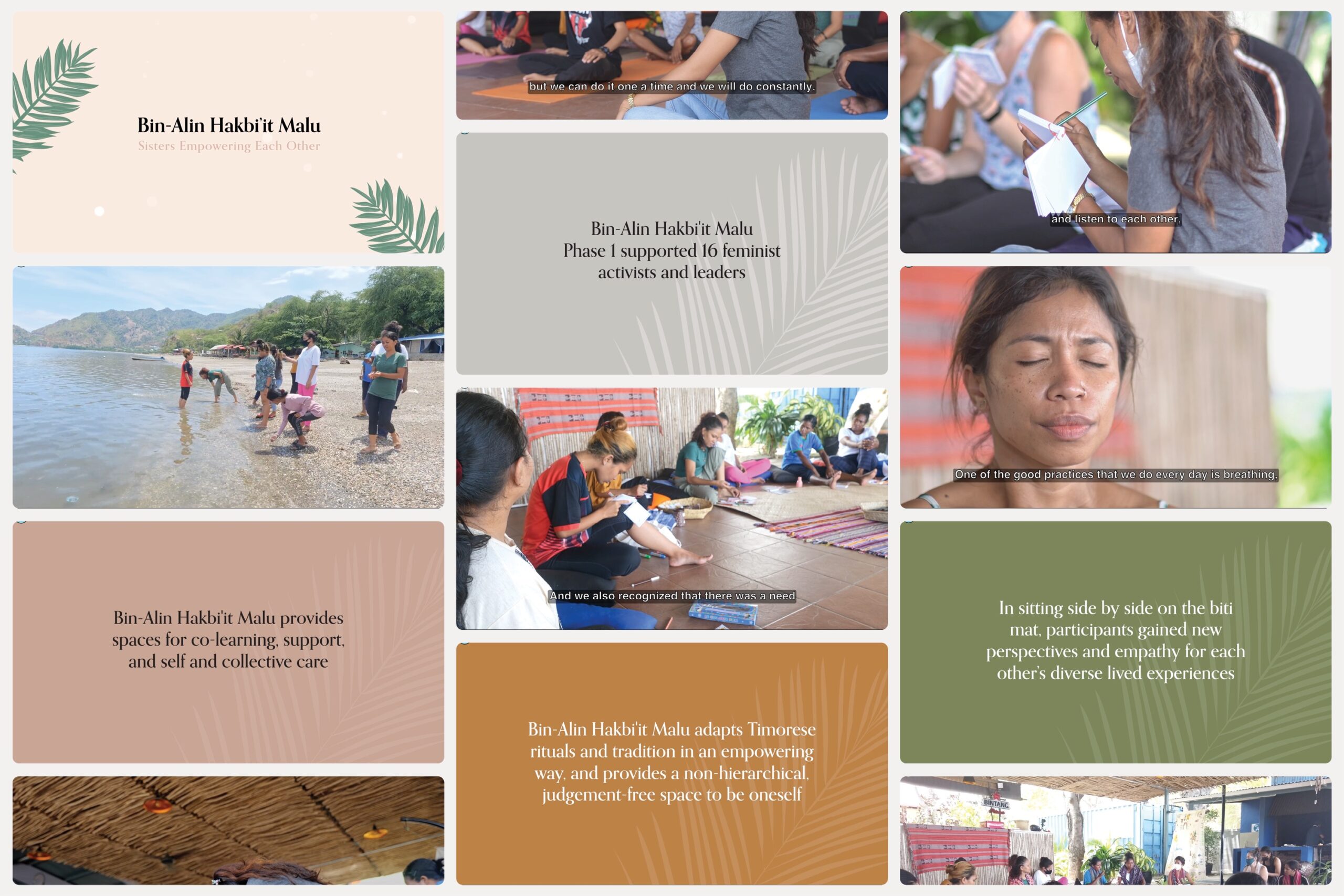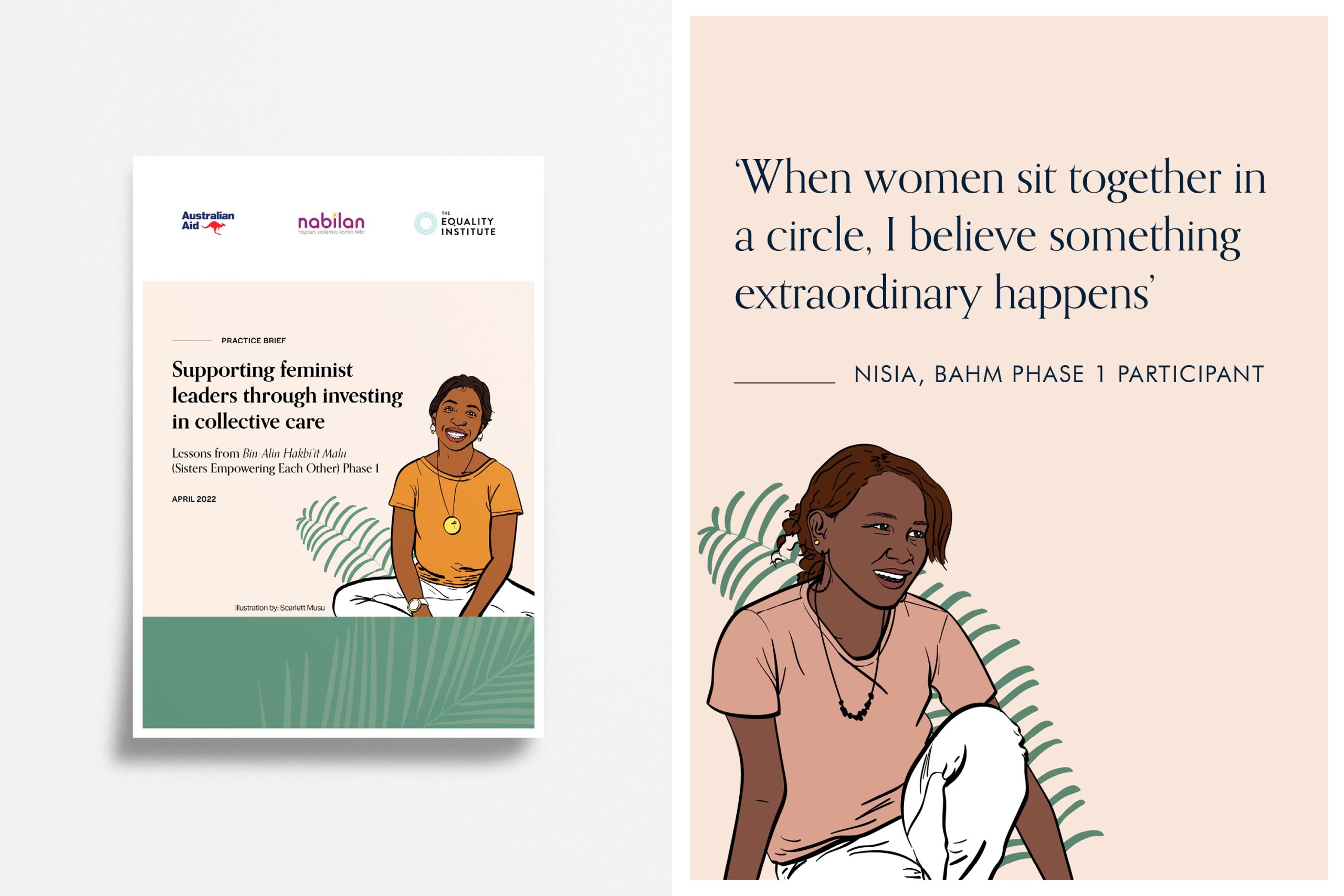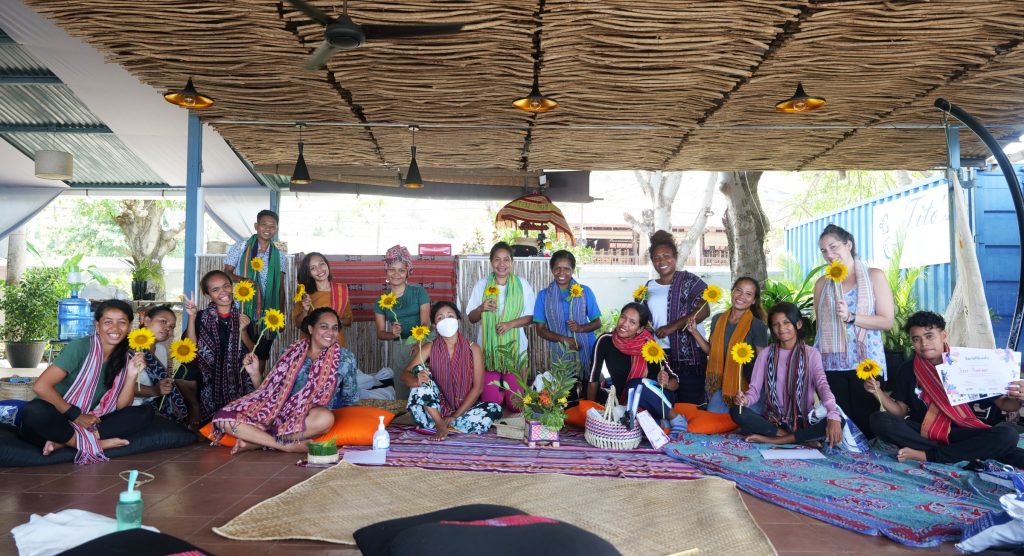ACMI x EQI: Trusted Long-Term Partnership for Gender Equality


BAHM Phase 1 participants celebrate at the Pilot’s Closing Retreat in Dili, Timor-Leste, November 2022. Photo credit by Mariano Gonçalves Visual Art.
Bin-Alin Hakbi’it Malu (BAHM) was a groundbreaking feminist leadership pilot launched in Timor-Leste in 2021 by EQI and The Asia Foundation’s (TAF) Nabilan Program: Ending Violence against Women and Children, funded by the Australian Government. Designed in response to burnout and emotional exhaustion among feminist frontline workers, the program resourced local leaders through a trauma-informed, culturally grounded approach to collective care.
Rooted in decolonial and intersectional feminist practice, it supported women and gender-diverse activists to reconnect to self, culture, and community, and to each other, while reclaiming local traditions in more equal and inclusive ways.
Feminist activists in Timor-Leste operate in a context of multiple, intersecting crises – from patriarchal violence to natural disasters, a global pandemic to the structural inequities of international aid. Their work often comes at great personal cost, with high levels of burnout, emotional exhaustion, and very limited access to psychological support. At the same time, dominant donor-driven models of leadership development were viewed locally as extractive and unhelpful, leaving activists feeling disempowered and disconnected.
Through early research and community dialogue, EQI and TAF heard a clear call: local feminist activists wanted a space to come together not as organisational representatives, but as individuals to heal, rest, share, and build a sense of community and solidarity. They sought something deeply contextual, relevant, and relational – a space to reflect, connect, and re-energise.

BAHM began in January 2021 with a two-day self and collective care retreat. From the beginning, healing was centred as political — breathing and embodiment practices such as trauma-informed yoga and mindfulness exercises were woven through the program. These simple, low-cost tools provided Bin-Alin with practical ways to regulate their nervous systems and manage stress in their everyday lives.
“I’ve noticed a big change in my emotions. I now always practice deep breathing. This breathing practice has helped me 100%.” – Bin-Alin participant
These practices proved transformative. Participants reported better mental health, greater calm, and improved relationships — even in the midst of lockdowns and family stress.
“Through this program, we’ve learned how to practise gratitude, no matter what situations life throws at you, and to take pause to breathe… For me, this has really helped my mental health, especially with the COVID-19 restrictions, being at home with the kids and trying to work.”
In a country where formal mental health services can be scarce, these self-regulation tools spread far beyond the program. Participants began teaching them to friends, family, and colleagues. When catastrophic floods hit Dili in April 2021, several Bin-Alin applied the techniques they’d learned in evacuation centres as part of first response.
From the start, we were intentional about creating a non-hierarchical, emotionally safe space — one that prioritised trust, friendship, fun, and vulnerability. Sessions were held around the biti (woven mat), a culturally significant space traditionally reserved for male elders. By reimagining this space, and participating as equals alongside Bin-Alin, facilitators helped reclaim it as one of inclusion, softness, and solidarity.
“Something great about BAHM is, with meetings, we don’t sit in fancy places with big chairs, like other groups. This is the real Timor situation. This group fully embraces Timorese customs: we sit around the biti together and talk about the situations we’re facing in our lives.”
One of the most beloved activities was the reinvention of a traditional betel leaf cleansing ritual. Instead of relying on male spiritual leaders, the Bin-Alin led the ritual themselves — a powerful act of feminist self-determination and cultural reclamation.
The pilot also fostered transnational solidarity. Guest speakers from across the region — including gender equality and disability rights advocates, queer activists, and pro-feminist men’s organisations — joined sessions to build connection and situate Bin-Alin’s work within broader global struggles.
“Something that’s important is… this level of friendship. [Bin-Alin] don’t see each other as coworkers, but as someone you can talk to.” – Sidalia, Co-Facilitator
“I feel as though I’ve gained a new family; new friends to listen to each other, and a space to openly express my feelings.” – Bin-Alin participant
While COVID-19 meant many sessions moved online, the sense of connection stayed strong through WhatsApp chats, photo competitions, and ongoing co-mentoring in small groups. Throughout, we remained flexible and responsive, adapting the program during lockdowns and natural disasters to focus on immediate care, while also providing humanitarian support when needed. The iterative and inclusive approach, though slower than a pre-designed model, enabled deep ownership by participants and ensured the approach remained grounded in local realities.
BAHM challenged conventional leadership models by elevating softness, care, and community as radical feminist strengths. The result was a powerful transformation, one that resourced feminist leaders to heal, reconnect, and rise together.
In conventional leadership thinking, emotion, friendship and collaboration have often been dismissed as ‘soft.’ In our pilot, it was the opposite.
Bin-Alin reported greater resilience, clarity of purpose, and self-confidence. They felt safer being themselves and speaking openly. Many described the experience as cathartic — a moment where shared trauma became shared strength, and sisterhood became a source of power.

“I feel a lot more comfortable, confident and assured in the direction I want to go in and the impact I want to have.”
“This space has really allowed me to be myself and be comfortable. There’s no harsh sense of judgement.”
The model developed in BAHM has since informed other EQI initiatives — including our self-care work with remote Indigenous communities through the Tangentyere Women’s Family Safety Group in Mparntwe (Alice Springs), an online self-care webinar series Resource, and the Find the Joy feminist leadership incubator for women from historically marginalised backgrounds in Australia.
While challenges around internet access, time constraints, and coordination arose, our commitment to care-first, community-led, feminist design allowed the program to remain deeply rooted, relevant, and resilient.
Amid a year marked by global pandemic, flooding, lockdowns, and deep systemic inequality, BAHM became a steady space of solidarity. A radical intervention in a divided and overburdened sector, it proved that resourcing feminist leadership must begin with resourcing feminist wellbeing.
The bonds forged through this pilot continue today — a testament to the power of softness, sisterhood, and the transformative potential of feminist leadership.
The land we live and work on always was, and always will be, Aboriginal land. We pay our respects to the Traditional Custodians of Country throughout Australia and acknowledge the ongoing leadership role of Aboriginal & Torres Strait Islander communities in preventing violence against women. We also acknowledge Traditional Custodians of the lands where EQI works around the world.
Read MoreYou have been logged out.
"*" indicates required fields